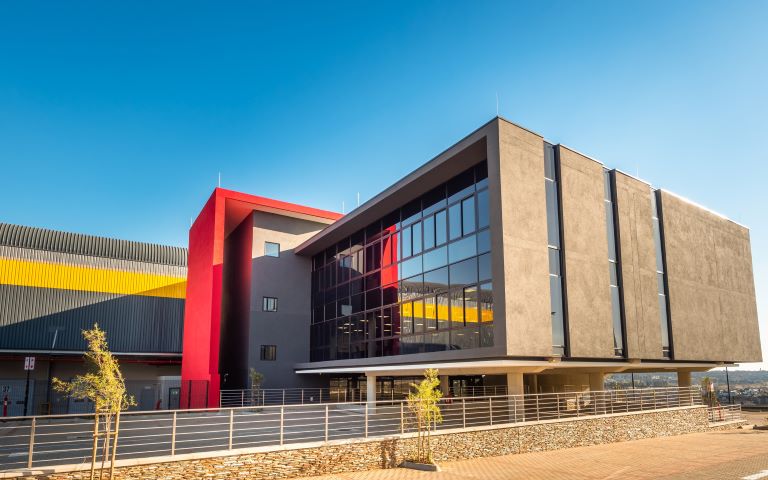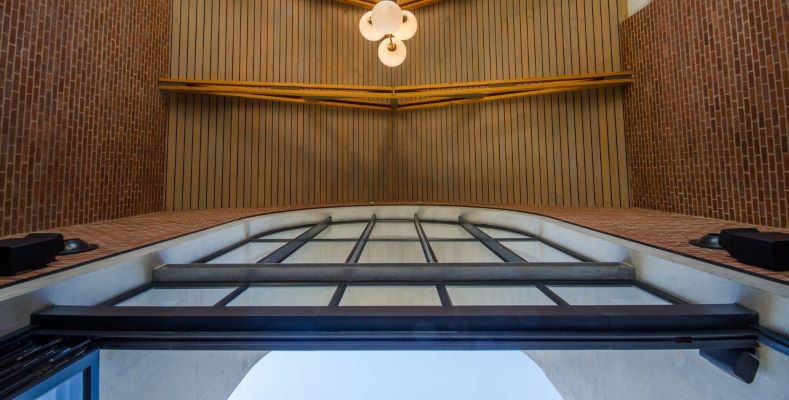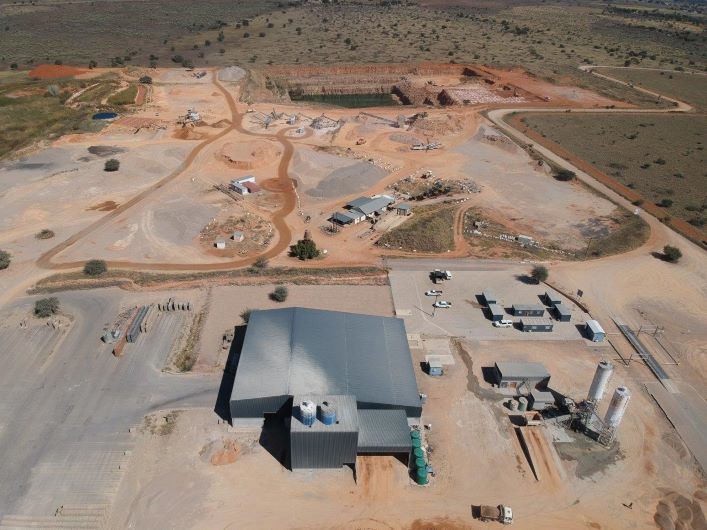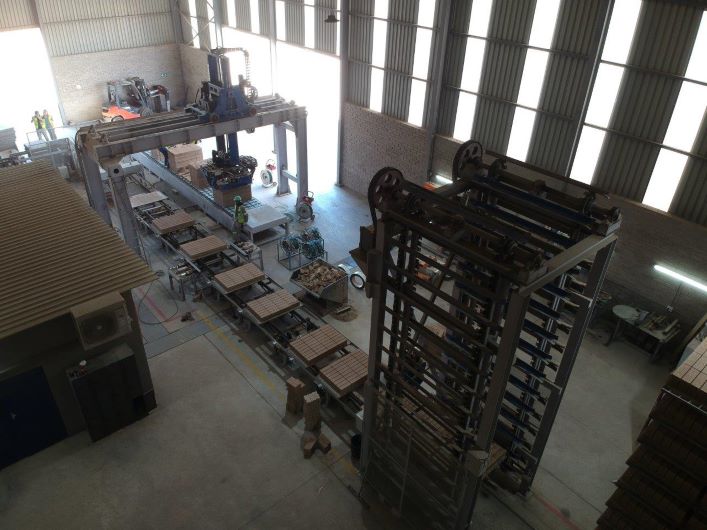An 85-year heritage has equipped AfriSam not only to weather economic cycles but to raise the bar even in hard times.
As South Africa’s construction sector – a key market – endures some of its worst times ever, AfriSam continues to improve. It does this in its service to customers, its contributions to stakeholders and its commitment to the environment.
According to acting chief executive officer Rob Wessels, not even the recent right-sizing has changed the fundamentals and focus of the business. “We are very people-focused with regards to our employees and their communities, customers, investors and other key stakeholders, and we uphold a positive approach to Africa’s future,” says Wessels. “That’s what we have concentrated on in the past 85 years, and that is what we’ll focus on in future.” He also highlights AfriSam’s reputation for quality products and expertise, and for “getting things right”. The business is determined to maintain this, he says.
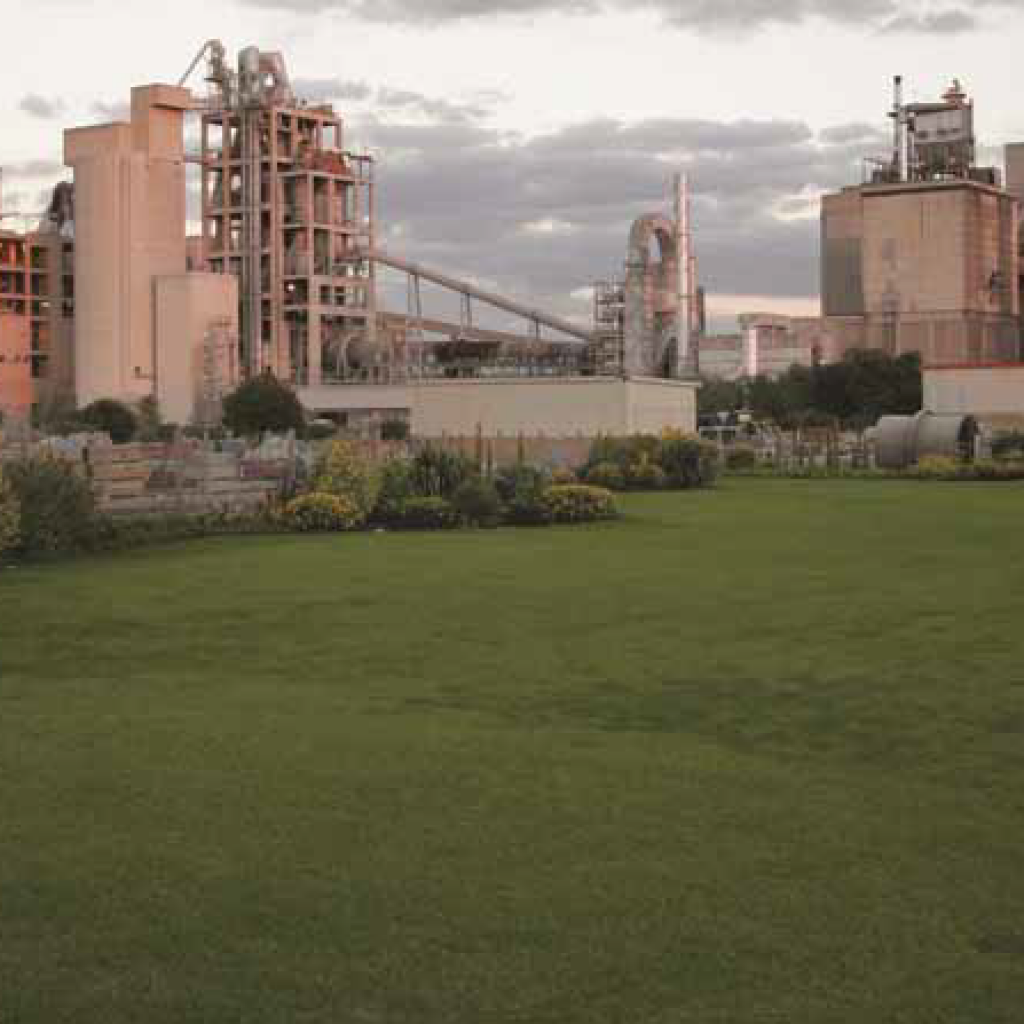
Looking back, looking forward
It is certainly the country’s urban landscape that bears the most obvious testimony to AfriSam’s remarkable contribution. Its cement and other construction materials have formed the heart of many iconic projects. Among these are Johannesburg’s Carlton Centre and the Nelson Mandela Bridge. Further afield has been the momentous Lesotho Highlands Water Project.
More recently, it has supplied Africa’s tallest building – The Leonardo in Sandton – and the inspiring Zeitz MOCAA art museum at Cape Town’s V&A Waterfront.
Richard Tomes, AfriSam’s sales and marketing executive, emphasises the vital mission of growing the infrastructure in the country and continent. “Our continent is in dire need of growth,” says Tomes. “We
hope that by continuing to succeed as a business, we will contribute to this growth by providing products and support that improve the lives of people.”
This also means making a direct and sustainable difference in the communities where it operates, he says – an approach which has had a long history and significant impact. AfriSam has undertaken several community upliftment activities, for instance, including the upgrading of schools. Other projects include partnerships with cricket and soccer organisations, to provide coaching or to raise funds for worthy causes. The company also plays a vital role within the industry by encouraging sustainability and technical performance.
As the anchor sponsor of the Concrete Society of Southern Africa’s Fulton Awards, it helps push the boundaries of concrete products. It also co-founded the AfriSam-SAIA Award for Sustainable Architecture + Innovation. This accolade recognises new ‘green’ building and also acknowledges industry players committed to sustainable innovation in human living environments.
Attracting and retaining expertise
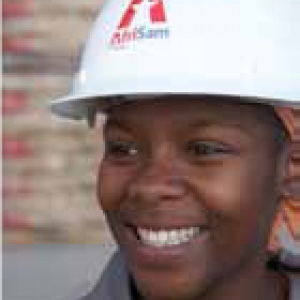
AfriSam can do all this because it attracts and retains the best skills available, says Tomes. “A number of our employees have been with the company for four decades,” he states. “This is despite the modern trend for people to move around more rapidly than in the past.”
He attributes this to the power of the ‘AfriSam Way’ – an inclusive culture that fosters participation from everyone from the shop floor to leadership.
“We encourage all our employees to offer ideas on anything that matters to the business,” he says. “This may relate to strategy, cost saving or being more productive and effective. The result is that people share our positive vision for Africa and play a more active role.”
Ongoing training interventions build capacity from below, so that most senior management positions are filled from within the business. Empowering everyone to work more effectively further ensures that the business survives and grows.
Commitment to planet
AfriSam’s people-centric approach also considers the generations that will follow, and the environment which they will inherit. According to AfriSam’s Cementitious Executive Hannes Meyer, the company has been consciously pursuing an environmental responsibility programme since before the 1990s. This includes putting in place mine rehabilitation plans for all of the company’s quarries. There is also a dedicated Rehabilitation Trust to provide funding for the closure of its mining operations. “Emissions is one of the most pressing environmental issues facing the cement manufacturing sector,” says Meyer. “By the nature of its production process, the cement industry is responsible
for about 5% of all greenhouse gases released into the atmosphere globally.”
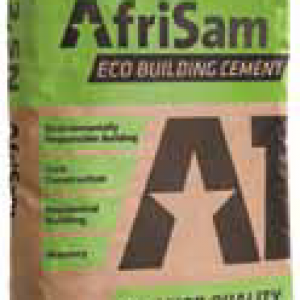
He highlights that AfriSam was the first cement producer in southern African to install sophisticated plant to reduce dust emissions. The company’s particulate emissions are now less than a tenth of their 2003 levels.“We are still the only producer in southern Africa to annually measure metals and dioxins in kiln emissions,” he says.“Our levels comply with stringent European Community limits.”
Speaking recently to Concrete Trends at the company’s Dudfield cement plant near Lichtenburg in the North-West province, Meyer said AfriSam was the first in the industry to install baghouse filter technology for kiln emissions. This complies with global best practice for dust emissions. Dudfield General Manager Vishal Aniruth added: “We were one of the first plants in the country to convert from old technology in terms of air emissions. This allowed us to achieve compliance with the latest emissions standards.”
Beginning life as a limestone mining operation in 1949, Dudfield’s first cement manufacturing facilities were commissioned in 1965. The innovative move towards bag filters was made in 2006, when they were installed during the rehabilitation of the Kiln 2 line. This kiln had been in place since 1972. Overall, the progress achieved in controlling its plant emissions and making production facilities more energy efficient has had considerable impact on AfriSam’s environmental performance. Between 1990 and the present, its CO2 emissions per ton of cementitious material have been reduced by 35%.
Greener cement
AfriSam’s environmental focus has also included the evolution of cement with a lower CO2 footprint.
To achieve this, Project Green Cement was launched in 2000 to increase the use of extenders from other industries. As clinker is the most energy intensive ingredient, extenders help to reduce the overall carbon footprint.
This process led AfriSam to become the first in the industry to introduce a CO2 rating system, in this rating allows the carbon footprint of each of its cement products – relative to Ordinary Portland Cement (OPC) – to be clearly indicated to the customer.
In May 2010, it launched Eco Building Cement, the lowest carbon footprint product. Its integrated position in other construction materials also allows AfriSam to apply this approach across its other offerings.
“AfriSam has become arguably the world’s first construction materials supplier to ‘carbon footprint’ all its production operations, including cement, aggregate and readymix concrete,” explains Meyer.
He notes that ongoing infrastructure construction is vital, and cement production – despite its carbon implications – is key to this effort. As a company, however, AfriSam continues working to better its energy performance in making cement.
“The next phase of reducing our carbon intensity is to look at electricity offset and even more effective use of the clinker in the cement that we produce,” he says.
Carbon tax can change behaviour
Climate change is now a central focus of national and global industrial and environmental policy. South Africa’s signing of the Paris Agreement in April 2016 committed the country to reduce greenhouse gas emissions by up to 42% by 2025. Hence the carbon tax recently introduced into law by government.
The tax is essentially a levy based on the amount of carbon emitted in the manufacture of a product. As mentioned above, the different cement brands in AfriSam’s range contain varying amounts of clinker. The carbon footprints of the brands therefore differ from each other. This has created yet another opportunity for AfriSam to encourage environmentally responsible choices among customers, in the way it displays its pricing.
“We are taking a transparent and responsible approach to the new tax,” says Tomes. “By showing the amount of carbon tax payable on each specific bag of cement, our customers will still see the base price that we are charging. This avoids any confusion about exactly how much of the final price is going towards the tax.”
This approach will also make it easier for customers to identify the AfriSam cement brands with lower carbon footprints.
Fostering Innovation
With South Africa ranking among the largest emitters globally – when measured on a per capita basis – the carbon tax is no surprise. The way the tax is implemented,however, will be crucial to its effectiveness. Meyer notes that the revenues from the carbon tax need to be directed towards promoting innovation that directly reduces carbon emissions.
“The carbon tax should support the efforts that industry is making to find ways of doing things differently,” he says. “It should not just be a punitive measure on emitters. It should also incentivise companies to develop and apply new environmentally friendly technologies.”

In conclusion, Wessels highlights the quality of AfriSam products and materials which communities can see in buildings, roads, bridges and other infrastructure. “What we do, both for our own people and other stakeholders, is to look and see what kind of impact we can have through our products, and how we can work for a common good,” he concludes. “It’s an extension of AfriSam’s values
and purpose beyond the business.

